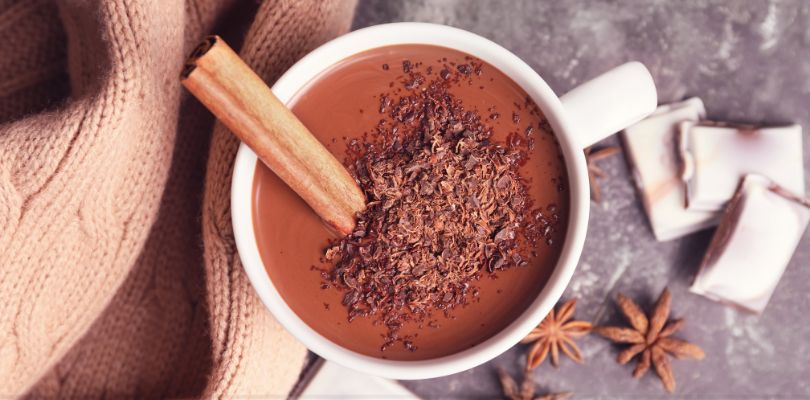Maintain a Healthy Diet to Help Symptoms
Lymphoma is a type of cancer that affects the lymphatic system, and is crucial for maintaining the immune system and fighting off infections. Managing lymphoma often involves a combination of treatments such as chemotherapy, radiation and immunotherapy. You can also talk to your doctor about Adcetris, which targets proteins present in cancer cells. However, dietary choices, including the drinks you consume, can also have a significant impact on your health and recovery. Here are the worst drinks to avoid if you are living with lymphoma, along with reasons why they can be harmful.
Common Drinks to Avoid with Lymphoma
1. Sugary Soft Drinks
Sugary soft drinks, such as soda and flavored carbonated beverages, are packed with refined sugars, which can lead to inflammation and a weakened immune system. For lymphoma patients, maintaining a strong immune response is crucial because treatments like chemotherapy and radiation can already compromise immune function. High sugar intake is also linked to insulin resistance and weight gain, both of which can contribute to worse health outcomes during cancer treatment. Excess sugar can also lead to higher levels of fatigue and lethargy, making it even harder to cope with cancer-related fatigue.
2. Alcohol
Alcohol should be strictly limited or avoided altogether for people with lymphoma. Consumption can interfere with the body's ability to absorb important nutrients like folate and vitamin B12. Both play a role in maintaining a healthy immune system. Furthermore, alcohol can have toxic effects on the liver, which may already be weakened due to chemotherapy or other medications. Alcohol can also worsen dehydration, increase nausea and irritate the digestive tract, leading to more severe side effects from lymphoma treatments. Additionally, alcohol can weaken the body's ability to fight off infections, making it even riskier for individuals undergoing cancer treatment.
3. Energy Drinks
Energy drinks contain high levels of caffeine and sugar. Both can have adverse effects on lymphoma patients. The excessive caffeine in these drinks can cause dehydration, disrupt sleep patterns and increase anxiety, which can be problematic for someone already dealing with the stress of cancer treatment. Moreover, the high sugar content in energy drinks can spike blood sugar levels, leading to increased inflammation and fatigue. Many energy drinks also contain synthetic ingredients and chemicals that can further burden the liver and kidneys, organs that are often already stressed due to cancer treatments.
Bladder training for overactive bladder is a widely used form of treatment. Read on to learn more about these techniques.
4. Fruit Juices with Added Sugars
While natural fruit juices in moderation can offer vitamins and antioxidants, many store-bought fruit juices are full of added sugars and preservatives. These additives can negate the potential health benefits of the juice and lead to weight gain, blood sugar spikes and inflammation. High sugar levels in fruit juices can also suppress the immune system and exacerbate fatigue, making it harder for lymphoma patients to manage their condition. Additionally, excessive consumption of fruit juices can cause gastrointestinal upset, which is particularly problematic for those already experiencing digestive issues from cancer treatments.
5. Coffee
Coffee, particularly when consumed in large amounts, can have several negative effects on people with lymphoma. It's a diuretic, which can lead to dehydration, especially during chemotherapy when staying hydrated is essential. High levels of caffeine in coffee can also increase feelings of anxiety, disrupt sleep and elevate heart rate, all of which can make it harder to cope with the physical and emotional stress of cancer treatment. Furthermore, the acidity of coffee can irritate the stomach lining, leading to nausea, acid reflux and digestive discomfort, which are already common side effects of chemotherapy and radiation therapy.
6. Diet Soda
Although diet soda may seem like a healthier alternative to sugary drinks, it comes with its own set of risks. Diet sodas contain artificial sweeteners such as aspartame, saccharin and sucralose, which can cause digestive issues like bloating, gas and diarrhea. For lymphoma patients, digestive health is particularly important, as treatments can often lead to nausea, constipation or diarrhea. Moreover, the phosphoric acid present in many diet sodas can lead to the leaching of calcium from bones, potentially contributing to weakened bones, which can be a concern for cancer patients receiving treatments that affect bone health.
7. Sports Drinks
Sports drinks are often marketed as a way to replenish electrolytes, but they typically contain high levels of sugar, artificial colors and preservatives. These added ingredients can contribute to inflammation and immune suppression, both of which are harmful for lymphoma patients. Furthermore, the excessive sugar in sports drinks can spike insulin levels, which may worsen fatigue and interfere with the body’s ability to fight off cancer cells. Opting for water or a low-sugar electrolyte drink is a much healthier alternative for hydration without the negative effects of added sugars and artificial ingredients.
8. Milkshakes and High-Calorie Smoothies
While smoothies can sometimes be a healthy option when made with whole fruits and vegetables, high-calorie versions that include excessive amounts of sugar, cream or sweetened yogurt can lead to unwanted weight gain and increased inflammation. For lymphoma patients, managing body weight and inflammation is important for overall health and treatment outcomes. Consuming high-calorie, sugar-laden drinks can also contribute to insulin resistance and digestive issues, both of which can negatively impact treatment response and recovery.
9. Hot Chocolate
Hot chocolate, especially when made with sugary mixes or topped with whipped cream, can be high in both sugar and saturated fat. Excessive sugar intake can suppress immune function, while high levels of saturated fat can contribute to inflammation and heart health issues. Additionally, the rich, heavy nature of hot chocolate can cause digestive discomfort and acid reflux, which are common side effects for lymphoma patients undergoing treatment. Opting for a healthier, low-sugar version of hot chocolate or herbal tea may be a better choice.
Treatment Options for Lymphoma
Lymphoma treatment typically depends on the specific type and stage of the cancer. Common treatments include chemotherapy, radiation therapy, immunotherapy and targeted therapy. In recent years, targeted therapies have become more prominent in lymphoma treatment because they focus on specific cancer cells, causing fewer side effects than traditional chemotherapy.
One promising targeted therapy for certain types of lymphoma is Adcetris (brentuximab vedotin). Adcetris is an antibody-drug conjugate used to treat Hodgkin lymphoma and certain types of non-Hodgkin lymphoma. It works by targeting a protein called CD30, which is found on the surface of lymphoma cells. Adcetris delivers a chemotherapy agent directly to these cancer cells, minimizing damage to healthy cells. This treatment can be used alone or in combination with other therapies and has shown success in shrinking tumors and improving survival rates.
Final Notes
People with lymphoma should avoid certain drinks that can negatively affect their health, such as sugary soft drinks, alcohol and energy drinks. These beverages can exacerbate symptoms, weaken the immune system and interfere with treatment. By making mindful dietary choices and working closely with healthcare providers, individuals with lymphoma can improve their overall well-being and better manage their condition.







